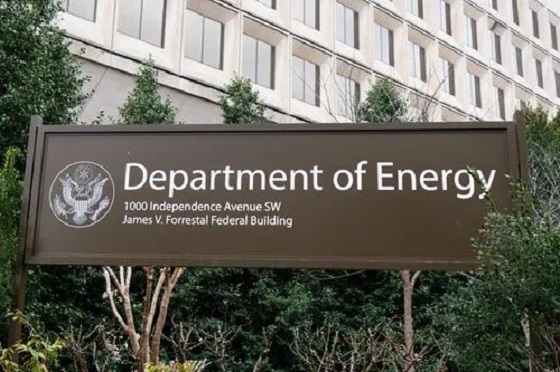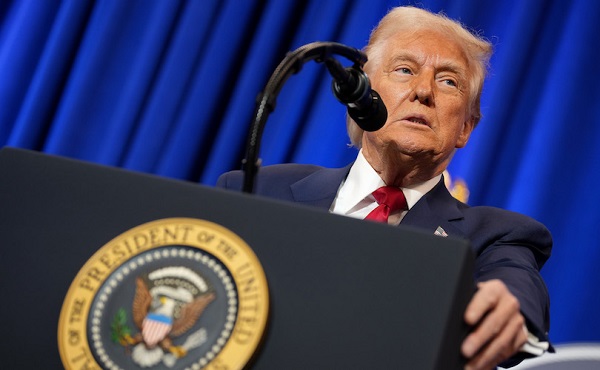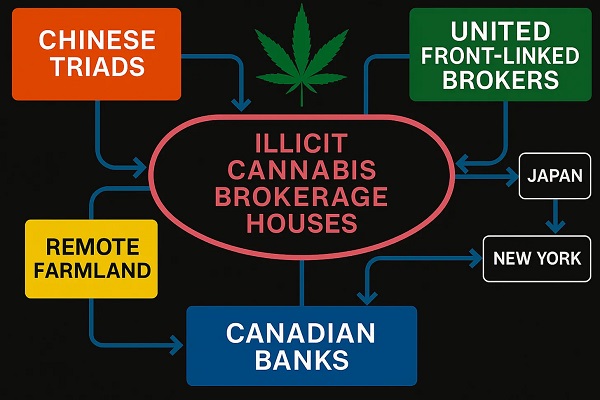International
Is the attempted assassination of anti-globalist Slovakian prime minister a warning of things to come?

Slovakian Prime Minister Robert Fico
From LifeSiteNews
By Angeline Tan
On April 10 of this year, Fico ominously predicted that assassination attempts like the one on his life could very well happen in his country:
And I’m just waiting for this frustration, intensified by Dennik N, SME or Aktuality (Slovak news), to turn into the murder of some of the leading government politicians.
On May 15, Slovakian Prime Minister Robert Fico was shot in what the country’s Interior Minister Matúš Šutaj Eštok described as a “politically motivated” assassination attempt, according to reports from Euractiv.
Based on eyewitnesses cited by Euractiv, Fico was greeting people at the House of Culture in the Slovak city of Handlová when he was shot.
Eštok cautioned that Slovakia was “on the edge of a civil war” owing to political disagreements with the Fico government, also declaring that Juraj Cintula, the 71-year-old man who fired five bullets at Fico, may have “acted as part of a group of people that had been encouraging each other to carry out an assassination,” as per Reuters reports.
According to local reports, just two hours after Cintula’s attempted killing of Fico, the suspect’s “communication history” online was deleted.
While Slovak authorities found that Cintula had no prior criminal record, he had been outspokein in his opposition to Fico’s government. Materials uploaded on social media depicted Cintula participating in an anti-Fico protest, chanting, “Long live Ukraine!”
Based on reports by Slovak media, Cintula told police that he had planned the attack a few days prior, but that he did not plan on killing Fico.
The CNN news outlet quoted Eštok as saying:
The reasons (the suspect gave) were the decision to abolish the special prosecutor’s office, the decision to stop supplying military assistance to Ukraine, the reform of the public service broadcaster and the dismissal of the judicial council head.
Interestingly, the reactions of mainstream media outlets to Fico’s attack belie their bias against the bullet-ridden Slovak leader, whose Smer-Social Democracy Party won last year’s elections on a campaign that resisted mass migration, guarded national sovereignty against centralized European Union control, and lambasted NATO’s military aid to Ukraine.
For instance, the BBC news outlet had this to say:
Fico has been accused of cosying up to figures like Hungarian Prime Minister Viktor Orbán, which has led some analysts to speculate that he might be trying to steal a page from the regime of a leader described by the European Parliament as running a ‘hybrid regime of electoral autocracy.’
Likewise, the U.K.’s Daily Mail portrayed Fico as a “pro-Putin” “anti-vaxxer”:
Critics argue that he has abandoned Slovakia’s pro-Western course..he is fiercely opposed to immigration and has criticized same-sex marriages. He became the country’s most prominent voice against masks, lockdowns and vaccinations during the Covid pandemic. He is also an admirer of Vladimir Putin and has vowed not to support Ukraine.
Furthermore, Sky News claimed that “Fico has long been a divisive figure,” characterizing the Slovak leader as “pro-Russian, anti-American.” Responding to mainstream media outlets’ “palpable coldness” to Fico’s shooting, particularly that of Sky News, Brendan O’Neill wrote in The Spectator:
A guest commentator said Fico’s views are ‘very divisive in Slovakia’ and ‘very divisive in the EU’. And therefore – wait for it – ‘it’s not surprising that this sort of event might take place’. Got that? Because Fico is a controversial figure, according to the EU anyway, it shouldn’t be a great shock that someone decided to shoot him. It is hands down the most disturbing thing I’ve heard on a mainstream news channel in some time. A democratically elected leader is riddled with bullets, Slovakian democracy itself is horrifically assaulted, and you’re not surprised?
O’Neill added:
The commentator on Sky listed Fico’s supposedly problematic views. He’s a populist and a nationalist, we were informed. Worse, he opposes military aid for Ukraine. What are we saying here? That it is ‘not surprising’ if public figures who hold such views – that nationhood is important, that the EU can be a pain in the backside, that aid to Ukraine should stop – are set upon by maniacs? This strikes me as a very dangerous message.
Fico’s supporters have blamed the onslaught of media villainization of the leader as one of the causes that prompted Cintula to shoot him. Eštok also decried the unfavorable media coverage of Fico:
It was information that you have recently presented. The way you presented them, I think each of you can reflect.
As Conor Gallagher wrote in Naked Capitalism:
… it’s the questioning of the NATO line and opposition to digging the Project Ukraine hole even deeper that got Fico and Smer in hot water with the Atlanticists that run Europe nowadays. Fico and Smer are relentlessly labeled pro-Russia for nothing more than their belief that Project Ukraine is not good for Slovakia. Not that there’s anything wrong with being pro-Russia, but since when does not wanting to go to war with Russia make one ‘pro-Russia’?
In comments about mainstream media portrayals of the Eurosceptic Fico as “pro-Russian,” Sputnik columnist Dmitry Babich said:
Such clichés became commonplace in mainstream European press against any non-systemic political leader who stands for his or her country’s sovereignty or veers from the EU’s ‘common foreign policy,’ not necessarily in unison with Russia.
On the same note, senior research fellow at the Global Policy Institute George Szamuely remarked:
[The alleged shooter is] basically on the same side as all of the EU media, the EU apparat, all the EU political figures who have been denouncing Fico and Slovakia for their supposed pro-Putin, for his supposed pro-Putin agenda, for his being in the service of the Kremlin. {The media has] come up with another story, which is that, somehow, Fico brought this on himself… because he’s such a polarizing figure. He’s so divisive and the political atmosphere in Slovakia is very, very toxic. A lot of hatred, a lot of hate speech. And, who’s behind it all? Robert Fico.
“There is social polarization and political antagonism in all of Europe, but usually nobody is shooting at prime ministers. [This happened] only in Slovakia,” Dimitris Konstantakopoulos, a former security and foreign policy advisor to late former Greek Prime Minister Andreas Papandreou, declared in statements to Sputnik, commenting on the dangerous situation which has developed in the heart of Europe in the wake of the attempt on Fico’s life.
“What people will think all around Europe is that this is a signal to any politician who would like to disagree with the main NATO and the European Union policies – that he has to be careful not to be assassinated,” Konstantakopoulos elaborated.
“I will remind you that they have already blown up the Nord Stream pipeline, and we’ve also had the assassination or attempted assassination of Russian journalists and politicians inside Russia. So it seems that [going back] long ago there was a ‘war party’ in the West which has decided not to permit a Russian victory in Ukraine. And that means using all possible means,” Konstantakopoulos highlighted.
Pro-Ukraine forces hoping to “discipline” leaders who do not support Ukraine in its conflict against Russia can use violence or other ways to push their agenda forward, Konstantakopoulos told Sputnik.
In context, Brussels has previously threatened to undermine the economy of Viktor Orbán’s Hungary if he vetoes Ukraine’s attempt to become an EU member. Also, in May this year, the Verden regional court in Lower Saxony, Germany, ruled that the Rotenburg Eurosceptic Alternative für Deutschland (AfD) leader Marie-Thérèse Kaiser was guilty of “incitement to hatred” for posting crime statistics showing that Afghanistan refugees committed a disproportionate number of sex offenses in the country.
The German court’s ruling caught the attention of billionaire Elon Musk, with Musk posting:
Are you saying the fine was for repeating accurate government statistics? Was there anything inaccurate in what she said?
Last year, AfD co-leader Tino Chrupalla was reportedly attacked with a syringe, causing him to go into anaphylactic shock, during an election campaign event in Ingolstadt, Bavaria. Nevertheless, the Associated Press (AP), citing German prosecutors and police, stated that “there were no indications yet that Chrupalla was attacked.”
Days earlier, Alice Weidel, another AfD co-leader, along with her family, had been scurried away to an undisclosed location for safety following intelligence reports of an upcoming attack on the nationalist politician. Rather than keeping silent or denouncing violence, leftist German Green Party MP Renate Künast, in an X post, questioned if Weidel had staged the “security problem to suit the election” in Bavaria at that time.
On April 10 of this year, Fico ominously predicted that assassination attempts like the one on his life could very well happen in his country:
And I’m just waiting for this frustration, intensified by Dennik N, SME or Aktuality (Slovak news), to turn into the murder of some of the leading government politicians.
Fico’s ominous predictions are not entirely unfounded, given the history of covert operations (that were sometimes violent) in Europe.
Following Fico’s shooting, India-based news outlet Firstpost ran an article citing U.S. journalist Nebojsa Malic and Habertürk reporter Ozcan Tikit stating that a continuation of “Operation Gladio” was linked to the attempt on Fico’s life.
The same article described Operation Gladio as “a clandestine operation involving a network of ‘stay-behind’ armies established in Europe during the Cold War,” backed “by NATO and the CIA with the cooperation of European intelligence agencies,” to gear up for a possible invasion by the then-Soviet Union.
Notably, the article reported that “NATO played a central role in coordinating these secret armies aiming to ensure that resistance would continue even if the official military forces were defeated or occupied,” ensuring “violent incidents including bombings and assassinations to destabilize the political situation.”
Firstpost added:
While initially intended as a defensive measure against a Soviet invasion, some of these groups became involved in internal political activities including influencing elections, engaging in acts of terrorism and manipulating political processes to counteract left-wing movements and parties.
Strikingly, while Fico has been labeled as “pro-Russia” by many mainstream media outlets, these same media outlets were quick to point out his attacker’s apparent links to pro-Russia paramilitaries and anti-immigrant forces, rather than highlight the attacker’s sympathies for the Kyiv regime under anti-Christian leader Volodymyr Zelensky. Ironically, Sky News reported the fact that Cintula, the would-be assassin, had commemorated the birthday of Marxist terrorist Che Guevara, a key figure in the Cuban revolution.
Evidently, the EU globalists, as echoed by their sycophants in establishment media outlets, have revealed their true colors once again via their reactions to Fico’s shooting. In view of the impending European Parliament elections from June 6 to 9, during which conservative and Eurosceptic politicians are set to win many votes, it is very likely that the globalist brahmins in Brussels and their coterie are panicking to retain power, even as their legitimacy to lead is declining.
In desperation, it would not be surprising if more assassinations (both physical and character) aimed at dissident leaders or public figures take place in the future.
armed forces
Secretive Lockheed Martin Skunk Works reveals latest high-tech military drone

 THE MAKICHUK REPORT
THE MAKICHUK REPORT
Unmanned Vectis to ride shotgun with next-gen fighters
When Lockheed Martin’s super secret Skunk Works© advanced development arm unveils a new project, the aviation world stops and listens.
As always, it is very hush-hush, and, quite often, groundbreaking.
This week’s announcement didn’t disappoint.
It’s called “Vectis” — a stealthy autonomous drone that Lockheed intends to fly by the end of 2027.
As with most Skunk Works projects, officials declined to comment on certain aspects of the aircraft’s design, such as its engine or top speed, though it was noted that Lockheed’s analysis “doesn’t point toward supersonic [speeds]” as a requirement.
What do we know about it, aside from it’s very cool, futuristic design?
The first Vectis prototype is currently “in progress,” and is envisioned as a large “Category 5” reusable drone designed to be customizable to match shifts in the threat environment, said OJ Sanchez, Skunk Works’s vice president and general manager.
“Vectis provides best-in-class survivability at the CCA [Collaborative Combat Aircraft] price point,” Sanchez told reporters ahead of the Air Force Association’s Air Space and Cyber conference in Washington, D.C. “Prototype parts are ordered, the team is in work, and we intend to fly in the next two years.”
According to Breaking Defense, Lockheed sees the range, endurance and flexibility of Vectis’s design as key to its appeal.
It is being developed for the US and international markets based on feedback from multiple customers about the future battlefield.
One has to only look at the Russia-Ukraine conflict, to see that things have changed.
Vectis can carry out mission sets ranging from air-to-air, air-to-ground and ISR, and has an open systems architecture allowing it to interface with platforms and mission systems not built by Lockheed Martin, Breaking Defense, reported.
Certain aspects of the drone — such as which payloads it can carry, or whether it is optimized for regular operations or used less frequently on deployments — can be fine-tuned to meet a customer’s specific requirements.
For instance, “we will have built into it the ability for it to be a daily flyer, reliably work alongside its crew teammates, to be able to integrate into operations for training, as well as for deployment,” Sanchez said.
“At the same time, if the requirement is ease of storage and ease of assembly, it’s absolutely built into the design. … That’s where we’ll work closely to listen with any individual customers and go from there on their operations choice, but the flexibility is built in.”
With the lessons of Ukraine in mind, Vectis is designed to be maintainable in a deployed environment, with a simple design made of “and durable, reliable materials” and easy access to the aircraft’s internal systems if repairs need to be made.
While it has not flown, Lockheed has conducted operational analysis and simulations that paired the drone with the F-22 and F-35, with Sanchez noting that its low-observable signature and communications gear are “compatible” with fifth- and sixth-generation aircraft.
It was also informed by previous experience designing tailless aircraft like the X-44 MANTA, Lockheed’s sixth-generation fighter prototype for the Air Force’s Next Generational Air Dominance program, Sanchez said.
“We’re building in that kind of autonomy, that flexible autonomy, if you will, so that we can work with more countries, more partners, to really listen to what their needs are,” he said.
“That flexibility has been demonstrated through multiple demonstrations. Now we’ll go out and build it, and we’ll work to prove in the open air.”
In the U.S. military’s parlance, Group 5 uncrewed aerial systems are the largest and most capable, covering anything pilotless with a maximum takeoff weight of 1,320 pounds or more, and that can fly at altitudes of 18,000 feet or higher.
When asked, Sanchez declined to offer any hard dimensions or other specifications for Vectis. He did say it was smaller than a Lockheed Martin F-16 fighter, but larger than one of the company’s Common Multi-Mission Truck (CMMT, pronounced ‘comet’) missile-like drones, which is a very broad size range.
According to experts at TWZ.com, renderings of Vectis from Skunk Works show a tailless drone with a lambda wing planform and a top-mounted air intake.
There is a pronounced chine line around the forward end of the fuselage and a shovel-like shape to the nose, as well as various conformal antennas and/or sensor apertures, all of which are indicative of low-observable (stealthy) design considerations.
A short promotional video also includes a cutaway view showing an S-shaped duct behind the air intake and exhaust shrouding, features that offer further radar cross-section and infrared signature reducing benefits.
Vectis’ core planform is interestingly reminiscent, in some broad strokes, of a rendering of a stealthy aerial refueling tanker concept Skunk Works first showed publicly last year.
That aircraft had a much larger design, in line with its intended mission, with large clipped wings that had some lambda-wing attributes, as well as small outwardly-canted twin vertical tails.
There has been something of an uptick in recent years in new crewed and uncrewed tactical aircraft designs with lambda or at least lambda-like planforms.
This includes one of the several air combat drone designs that emerged around a massive military parade in China earlier this month, as well as one of the two Chinese next-generation crewed combat jets that broke cover in December 2024.
Vectis also has “endurance ranges compatible with Indo-Pacific, European, and CENTCOM [U.S. Central Command] theaters,” according to a Lockheed Martin press release.
What munitions and other payloads Vectis might be able to carry is unclear. Skunk Works’ Sanchez mentioned “reusable or flexible payloads,” but did not elaborate.
The promotional video shows a vignette in which the drones, operating together with an F-22, use unspecified sensors to spot and track aerial threats before being ordered to fire air-to-air missiles, presumably from internal bays, at those targets.
Electronic warfare suites and signal relay packages might also be among the payload options for Vectis drones.
Sanchez did not provide any hard cost metrics for Vectis. The Air Force has said in the past that it is aiming for a unit cost roughly in the US$20 million range for drones being developed under the first phase, or Increment 1, of its CCA program.
In discussing how Vectis could be adaptable to multiple U.S. and foreign operator requirements, Sanchez also spoke in more detail about the drone’s current dependence on traditional runways, as well as its ability to operate from more austere locations.
“Our analysis aligns with the U.S. Air Force, that runway accessibility is incredibly important in every theatre, particularly in INDOPACOM [the U.S. Indo-Pacific Command area of responsibility]. So we’re very intentional about the flexibility that this system would enable in the theaters of interest,” Sanchez explained.
“And so the amount of runways that will be available, the amount of flexibility to implement, whether it be an Agile Combat Employment approach, or a hub and spoke for other countries, depending on how it is, Vectis will be very capable in those spaces.”
Exactly how Skunk Works envisions the Vectis will handle counter-drone weapons, such as Israel’s Iron Dome, Iron Beam, or David’s Sling, remains uncertain.
THE MAKICHUK REPORT is free today.
You can tell THE MAKICHUK REPORT that their writing is valuable by pledging a future subscription.
You won’t be charged unless they enable payments.
Crime
Charlie Kirk’s Widow Says She Forgives Her Husband’s Assassin During Memorial


From the Daily Caller News Foundation
Erika Kirk forgave her husband’s alleged assassin Sunday during a speech at the memorial service for Turning Point USA founder Charlie Kirk, saying he would not respond with hatred.
The accused assassin, 22-year-old Tyler Robinson, was arrested by police on the evening of Sept. 11, roughly 33 hours after Kirk was fatally shot while taking part in a “Prove Me Wrong” event at Utah Valley University.
In the midst of an emotional speech, Erika Kirk recounted the Biblical account of Jesus Christ on the cross forgiving those who crucified him.
Dear Readers:
As a nonprofit, we are dependent on the generosity of our readers.
Please consider making a small donation of any amount here.
Thank you!
WATCH:
“On the cross, our Savior said, ‘Father, forgive them, for they know not what they do,’” Mrs. Kirk said, choking up with emotion. “That man, that young man… I forgive him.”
The audience erupted in applause and emotion for approximately 45 seconds as Erika Kirk broke down in tears.
“I forgive him because it is what Christ did,” Mrs. Kirk said. “It is what Charlie would do. The answer to hate is not hate. The answer we know from the gospel is love, and always all. Love for our enemies and love for those who persecute us.”
Prior to forgiving the assassin, Mrs. Kirk told a capacity crowd that filled up State Farm Stadium why Charlie Kirk went to the college campuses.
“Charlie passionately wanted to reach and save the lost boys of the west, the young men who feel like they have no direction, no purpose, no faith and no reason to live. The men wasting their lives on distractions and the men consumed with resentment, anger and hate,” Erika Kirk said, choking up at times. “Charlie wanted to help them. He wanted them to have a home with Turning Point USA, and when he went onto campus, he was looking to show them a better path and, a better life that was right there for the taking. He wanted to show them now. My husband, Charlie, he wanted to save young men, just like the one who took his life.”
-

 Business2 days ago
Business2 days agoHow the feds blew your money this week
-

 Opinion1 day ago
Opinion1 day agoIt’s payback time as culture war cops switch sides, moral confusion reigns and revenge gets ready to rumble
-

 Health2 days ago
Health2 days agoNearly 200,000 Albertans left an emergency room without treatment last year, finds the MEI
-

 Business22 hours ago
Business22 hours agoCanadian gov’t spending on DEI programs exceeds $1 billion since 2016
-

 Frontier Centre for Public Policy22 hours ago
Frontier Centre for Public Policy22 hours agoCharlie Kirk Fought A Progressive Ideology That Punishes Truth
-

 Crime21 hours ago
Crime21 hours agoCharlie Kirk’s Widow Says She Forgives Her Husband’s Assassin During Memorial
-

 Censorship Industrial Complex21 hours ago
Censorship Industrial Complex21 hours agoMedia’s Psyop Against Climate Scientists
-

 Agriculture1 day ago
Agriculture1 day agoOttawa’s EV Gamble Just Cost Canola Farmers Billions






